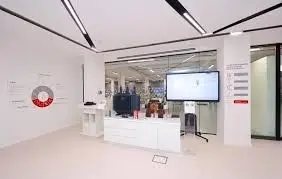The UK and Qatar have launched a joint Artificial Intelligence (AI) research commission aimed at creating a roadmap for collaboration on AI that will benefit both countries. The initiative, announced by the British embassy in Doha, will explore opportunities to enhance cooperation in AI, aligning with both nations’ technology strategies.
The research study will be led by Queen Mary University of London (QMUL) in partnership with Hamad bin Khalifa University (HBKU) in Qatar. The project will be headed by Prof. David Leslie, Professor of Ethics, Technology, and Society at QMUL’s Digital Environment Research Institute, and the director of Ethics and Responsible Innovation Research at the Alan Turing Institute.
This joint study will build on the AI advancements both countries have made and focus on practical ways to enhance cooperation across various areas, including ecosystem development, policy, regulation, security, and international engagement. The initiative is a collaboration between Qatar’s Ministry of Foreign Affairs (MoFA), the AI Committee of the Ministry of Communications & Information Technology (MCIT), Qatar Research, Development and Innovation Council (QRDI), and the British embassy in Qatar.
The announcement coincides with the state visit of His Highness the Amir Sheikh Tamim bin Hamad al-Thani to the UK. The project is funded by the UK Government’s Gulf Strategy Fund, part of the Foreign, Commonwealth & Development Office’s International Programme.
Neerav Patel, British ambassador to Qatar, highlighted the significance of the initiative, emphasizing the importance of ethical governance in AI. Dr. Mariam Khalid al-Hamar, Minister Plenipotentiary at MoFA, noted that the collaboration will leverage AI to advance innovation and address global challenges like peacebuilding and decision-making. She also emphasized the importance of ensuring AI benefits all nations through inclusivity.
Eman Alkuwari, digital innovation director at Qatar’s MCIT, praised the collaboration, noting that it represents Qatar’s commitment to AI as a transformative force for good, fostering innovation and shaping ethical frameworks. Prof. Leslie, leading the study, expressed optimism about the partnership’s potential to drive commercial opportunity and technological cooperation between the two countries.
Omar al-Ansari, secretary general of QRDI, highlighted the initiative’s role in advancing innovation and strengthening ties between Qatar and the UK’s AI ecosystems. Prof. Colin Bailey, president of QMUL, expressed pride in the collaboration, emphasizing the long history of successful international partnerships and the potential to ensure AI technology is used responsibly.
This strategic collaboration between Qatar and the UK aims to unlock new opportunities in AI research, development, and innovation, benefiting both nations and contributing to global progress in the field.















